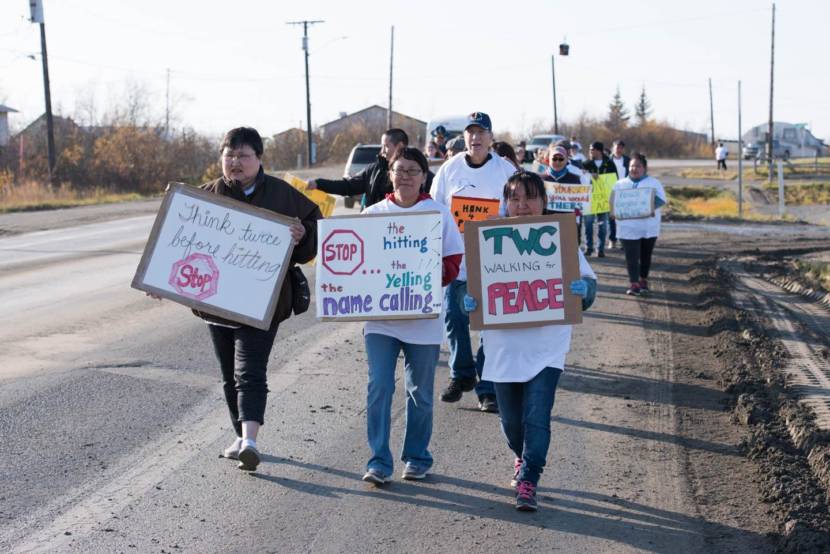
Domestic violence shelters around the nation are preparing for a large decrease in federal funding that will take effect in a few months. Tundra Women’s Coalition in Bethel said it will mean a 20% cut in its operating budget and significant losses in services.
Federal funding for domestic violence and women’s shelters from the Victims of Crimes Act has been decreasing in recent years.
The Council on Domestic Violence and Sexual Assault is an organization within the Alaska Department of Public Safety that directs federal funding to victim services programs within the state. In a letter sent on April 1, CDVSA Executive Director Diane Casto wrote that Victims of Crimes Act funding would decrease by 34.6% from the previous year.
It will affect shelters like Tundra Women’s Coalition and the Emmonak Women’s Shelter in fiscal year 2022, beginning in July.
“Everyone was like, ‘What is everybody going to do? What are the shelter programs going to do?’ It was devastating news,” said JoAnn Horn, director of Emmonak Women’s Shelter.
Bethel’s Tundra Women’s Coalition Executive Director Eileen Arnold explained how the decrease in federal funding would affect her organization’s bottom line.
“It’s like 20% of our full, annual operating budget. It’s deep, it’s significant,” Arnold said.
She said with that large of a funding cut, TWC will have to think about eliminating services.
“That amount of money would equal, like, the entire Children’s Advocacy Center, or it would be the entire shelter,” Arnold said. “These are terrible choices.”
Arnold said TWC could also consider cutting part of every program.
“But that’s just as difficult because our staff are already under-resourced and overwhelmed with work,” Arnold said.
Horn said if they can’t find more money, the Emmonak Women’s Shelter would likely have to cut its number of advocates, who answer crisis calls 24 hours a day for the 13 villages served by the shelter. They also arrange accommodations for women and children and coordinate with law enforcement.
Arnold is hoping the state can help fill the budget gap left by the decrease in federal funding. Arnold is asking people to call their state legislators to advocate on behalf of their shelters.
“I hope that TWC has helped people in this community. And for the people that it has helped, I hope that they would tell our legislators that,” Arnold said.
There is a House Finance Committee hearing on Friday, April 9 at 1:30 p.m. to share public testimony on the state’s operating budget.




